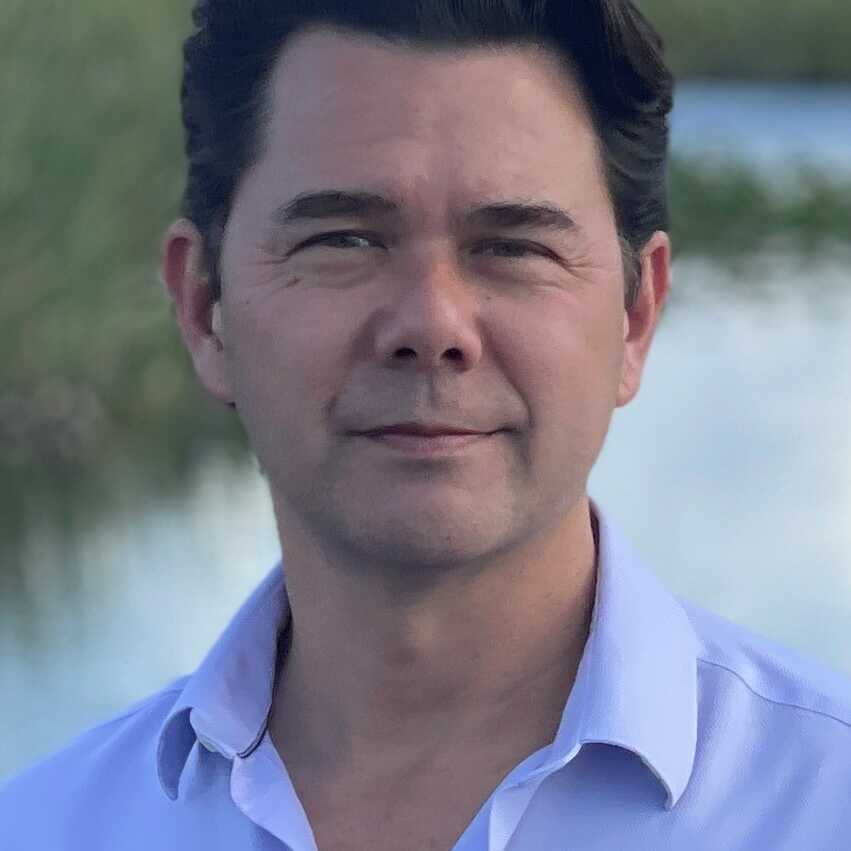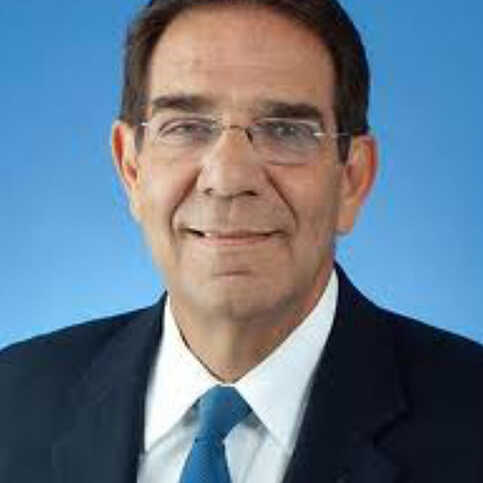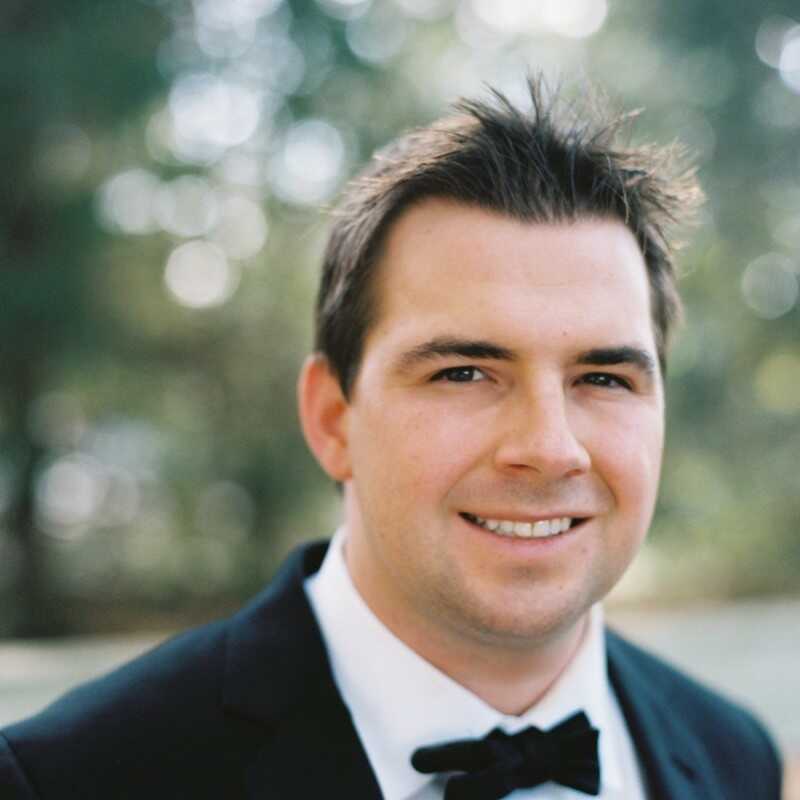Clean Water Questionnaire
2025 Clean Water Questionnaire
Miami-Dade Mayor
We asked the 13 candidates running to be the next Mayor of the City of Miami to fill out our clean-water questionnaire so voters can see where they stand on key environmental issues affecting the city.
Responses are listed below. We’ll continue to add to our listings if and when additional candidates complete their surveys. And watch this space for more on the Miami Mayoral election!
Q1
Much of Miami's charm and economy is dependent on clean water. As Mayor, what policies would you advance to curtail pollution and clean up Biscayne Bay?

Alyssa Crocker
Mayoral Candidate
My goal is to fast-track septic-to-sewer conversions in high-risk neighborhoods, retrofit stormwater outfalls with filters and bioswales, and expand Miami's urban tree canopy by 25,000 native trees, including rooftop canopies. I'd like to see stricter oversight of commercial pesticide use to ensure safe application cycles and prevent runoff, while protecting culturally significant places like Virginia Key Historic Beach. Ideally, Miami would also launch a Rainwater Harvesting Initiative modeled after Texas, with bulk-purchase discounts and tax incentives for builders, businesses, and residents who install rainwater bins to capture water for irrigation and reduce stormwater pollution.
Budget implication: ~$275-$400M over 4 years.
Funding sources: Florida Resilient Florida grants, EPA State Revolving Fund (SRF), EPA WIFIA loans, NOAA/NFWF coastal resilience grants, HUD CDBG-MIT funds, and local stormwater utility fees.
Accountability: Progress tracked through a Resilience Dashboard and annual reporting on septic conversions, pesticide compliance, and rainwater capture.

Eileen Higgins
Mayoral Candidate
As a Miami-Dade County Commissioner, I've taken bold, results-driven action to tackle plastic pollution at its source. I authored and passed landmark legislation that will eliminate single-use plastics and Styrofoam at all concessionaires operating in County-run facilities' ensuring our public spaces align with our environmental values and protect vulnerable ecosystems like Biscayne Bay. This wasn't an easy win. The policy faced intense opposition from airport concessionaires and powerful plastic and beverage industry lobbyists. But through persistence, coalition-building, and a commitment to doing what's right for our environment, I got it done.
Transitioning to a plastic-free culture is more than an environmental gesture; it's a practical, forward-thinking solution that aligns with our goals of waste reduction, ecosystem protection, and climate resilience. I remain committed to expanding these efforts and working with communities, businesses, and policymakers to create a cleaner, healthier future for the City of Miami.
Additionally, I led the charge to pass Florida's strongest fertilizer ordinance, banning the use of fertilizers during the rainy season to prevent nutrient runoff that causes harmful algal blooms and fish kills in Biscayne Bay. I also supported the appointment of the County's first-ever Chief Bay Officer, ensuring Biscayne Bay has a permanent voice at the decision-making table - a model the City should adopt or align with to strengthen intergovernmental collaboration.

Ken Russell
Mayoral Candidate
I wrote the state's strongest Environmental Crimes law which currently shuts down construction sites that silt into the bay (instead of meaningless fines). I also banned Glyphosate by City use which stopped 5000 gallons per year from flowing into the bay. I wrote the first major Fertilizer Ban which the county then adopted. I also funded fecal coliform specific testing at City outfalls which went above the county's existing criteria. As Mayor, I would mandate that none of our solid waste would go toward an incinerator that the County is currently planning to build (voted for by my competitor Commissioner Higgins) in or near the Everglades. This facility would pollute our aquifer. If the City does not feed the incinerator, the County will be forced to cancel the contract to build it. Then we can focus on zero waste solutions while protecting our water.

Xavier Suarez
Mayoral Candidate
I have been a champion of clean water since 1985, when I led the effort to clean (by reverse osmosis) the stormwater effluents into the Miami River, using a total of $200 million in state, county and city funds. As county commissioner, I was the first to propose using deep water injection for the clean up of the former Virginia Key landfill, and I expedited the clean-up of said landfill, having to fight the then Mayor. I also opposed all waterfront commercialization (Watson Island, Parcel B, Virginia Key and Marine Stadium site).

K. James DeSantis
Mayoral Candidate
Biscayne Bay is Miami's lifeblood, and as Mayor I would prioritize upgrading aging septic and sewer systems, reducing stormwater runoff, and enforcing stricter pollution controls to stop contaminants at the source. I would also invest in seagrass and mangrove restoration, green infrastructure, and oyster reef projects to restore the bay's health and protect our economy and environment for future generations.
Q2
The City of Miami is on the front lines in the fight against climate change; rising tides will affect lives, ecosystems and threaten billions of dollars in assets. In 2024 the new Stormwater Master Plan determined that over $5 billion is needed to shore up the city against flooding and achieve long-term resiliency goals. Can the city achieve these goals; and how will Miami pay for it?

Alyssa Crocker
Mayoral Candidate
I'd like to see Miami move beyond stalled studies and into real resilience action. The 2024 Stormwater Master Plan has so far only produced updated topography maps. With sea levels rising, stronger tropical systems, and heavier rainfall already here, those maps are becoming outdated by the year. The city has essentially done nothing to implement real change. Ideally, Miami would immediately integrate nature-based solutions - planting tens of thousands of water-absorbing native trees and restoring mangroves and wetlands to shield residents and neighborhoods from flooding. While these protections take root, the aim is to regularly update topographic data and track hydrologic changes so that infrastructure projects are guided by the latest science.
Phase 1: ~$600M for flood-prone basins, septic-to-sewer conversions, stormwater retrofits, and native tree planting.
Phases 2-3: Shoreline buffers, permeable streets, drainage upgrades, and outfall reconstructions.
The city's Master Plan estimated over $5B in needs over 20-30 years. With smarter, phased investments and greater reliance on nature-based solutions, the final cost may be lower, but Miami must plan responsibly for the upper range to ensure long-term protection.
Funding sources: Florida Resilient Florida, EPA SRF/WIFIA, HUD CDBG-MIT/DR, FHWA PROTECT, NOAA/NFWF, FEMA BRIC (if reinstated).
Accountability: ROI scoring, Resilience Dashboard, Clean Water Report Card, equity assessments.

Eileen Higgins
Mayoral Candidate
The city must find a way to achieve these goals in order to adapt to climate change's impending effects. I have already developed relationships in Tallahassee and D.C., where I have routinely lobbied for state and federal funding for Miami-Dade County. As Mayor of Miami, I will pivot my advocacy to bring our city to the forefront, and make it clear how important Miami's climate adaptability and resilience projects are to the state's economy. Additionally, there is money within the Miami Forever Bond allocated for unfulfilled resiliency projects, including major flood protection projects. As Mayor, I will ensure we put this money to use and prepare Miami for the future.

Ken Russell
Mayoral Candidate
As Commissioner I championed and passed the Miami Forever Bond with $200million for storm surge and sea level rise infrastructure. While some of the first projects are already under way, this is a drop in the bucket of need for the stormwater master plan. I led the challenge against the 20ft concrete wall around downtown proposed by the Army Corps of Engineers. I instead pushed for their $8billion Back Bay Plan to be spent on Green/Grey infrastructure solutions. My competitor Commissioner Higgins wanted the Army Corps to proceed with the previous plan which would have been devastating for Downtown and Brickell. As Mayor, I will push for those studies to complete and for the Army Corps to move toward the next steps of activating those funds for our protection against storm surge.

Xavier Suarez
Mayoral Candidate
The city approved $200M in Miami Forever Bonds in 1997. I have started reviewing that funding with a view to changing the practice of building concrete walkways and berms instead of relying on living shorelines. I authored the most complete analysis of sea level rise (2015-2020) in an effort to understand the accelerated rate of sea level rise in Southeast Florida, as opposed to Key West and West Florida.

K. James DeSantis
Mayoral Candidate
Yes, Miami can achieve these goals, but it requires smart planning and disciplined funding. As Mayor, I would prioritize infrastructure projects based on greatest risk, aggressively pursue state and federal grants, and leverage public-private partnerships to stretch every tax dollar while ensuring transparency and accountability in how funds are spent.
Q3
Have you observed or experienced any effects of political corruption on environmental policies in your community? If elected, what would you do to fight corruption?

Alyssa Crocker
Mayoral Candidate
My goal is to ensure that environmental and resilience policies are free from corruption and discrimination. In Miami, environmental racism has left minority, low-income, and historical communities most exposed to toxic chemical overspray - which contaminates soil, water, and air. These unsafe practices lead to long-term health risks and degrade entire neighborhoods. I'd like to stop this by enforcing restrictions on pesticide spraying cycles, so chemicals cannot be applied excessively, irresponsibly, or in an unethical manner. This protects residents from exposure through runoff, soil absorption, and airborne drift, while safeguarding ecological integrity. These standards will be aligned with EPA environmental justice guidelines and monitored in coordination with state and federal partners to guarantee compliance. The aim is to guarantee that every environmental decision and project is fiscally responsible, realistic, and transparent, ensuring taxpayer resources are spent wisely and equitably across all communities.
Budget implication: ~$3-$5M annually.
Funding sources: City operating budget, Florida DEP technical assistance, EPA Environmental Justice grants.
Accountability: Annual environmental equity report tracking pesticide enforcement and investment distribution.

Eileen Higgins
Mayoral Candidate
We can't protect our waters without transparency and accountability. I passed legislation requiring septic tank and grease trap disclosures in all real estate transactions, giving homebuyers the information they need to avoid pollution-prone properties. I also banned contractors with repeated violations for damaging water and sewer lines during construction - because no one should profit at the expense of our environment.
As Mayor, I will implement similar accountability measures within City limits to protect our aging infrastructure and ensure responsible development that doesn't pollute our waterways.

Ken Russell
Mayoral Candidate
The greatest corruption with regard to environmental policy is at the state level where the Clean Water Act is not enforced and Detention Facilities are placed in the Everglades without NEPA consideration. These abuses affect us at the local level. Local Corruption affects environmental policy too. The undue influence of development on the City Commission almost erased the tree protection ordinance that I sponsored when in office. Developers seeking to clear cut lots want to erase the permitting process for tree removals. While working with Sierra Club, I was able to help get this ordinance withdrawn. It may come back in another form and must be stopped. In my first year in office I moved to have the City Attorney removed over withholding evidence in a lot splitting appeal. This would have subdivided one Coconut Grove lot into five resulting in environmental harm. I have testified in court and at deposition four times against the City and two Commissioners. One was removed from office and the other found liable for $62million in first amendment damages. I filed a Bar Complaint against the Mayor and City Attorney for purposefully violating the Green Space Public Benefits Requirements of a major city lease. I will always go to the mat for the environment and as Mayor I can ensure that we prioritize good government for its benefit.

Xavier Suarez
Mayoral Candidate
For 17.5 years in public office, I voted each and every time with the neighbors against developers seeking to obtain higher density or build outside the UDB. My stands on these issues, stated up front (and not after the votes were counted), helped protect Miami-Dade from over-development. Right now, I'm taking a closer look at the effect of Live Local and transit oriented development zoning changes that provide one-mile radius for TOD zoning when it should be more like a quarter-mile radius.

K. James DeSantis
Mayoral Candidate
Yes, Miami has seen how corruption and backroom deals can stall or weaken vital environmental protections, leaving Biscayne Bay and our neighborhoods vulnerable. As Mayor, I would fight corruption by enforcing strict transparency rules, ending pay-to-play politics, and ensuring environmental policies are guided by science and the public interest and not special interests.
Q4
Miami and Florida in general continue to see rapid growth which can compromise our natural resources. How can the city accommodate new development while simultaneously protecting Biscayne Bay and the broader environment?

Alyssa Crocker
Mayoral Candidate
My goal is to guide Miami's growth in a way that safeguards both the economy and the environment. I intend to ensure new development meets resilience standards like stormwater retention, permeable surfaces, and no-net-pollution designs — consistent with EPA and Florida Resilient Florida guidelines — so that projects remain fiscally responsible and protect taxpayers. A priority of mine is to encourage infill and brownfield redevelopment: putting vacant parcels back into productive use, strengthening neighborhoods, supporting affordable housing, and avoiding costly expansion into wetlands or flood zones. Ideally, Miami will expand mangrove and wetland buffers along the shoreline as natural defenses, while ensuring upgrades do not drive climate gentrification that displaces historical and minority communities.
Budget implication: ~$100-$200M over 4 years for shoreline protections and retrofits.
Funding sources: Developer impact fees, EPA SRF/WIFIA financing, NOAA/NFWF National Coastal Resilience Fund, and Florida Resilient Florida grants.
Accountability: Public compliance dashboards and environmental impact assessments so residents can see every dollar at work.

Eileen Higgins
Mayoral Candidate
The city is facing a critical housing crisis, so it is important that we build with the environment in mind. As the sponsor of Miami-Dade County's strengthened Sustainable Buildings Ordinance, I ensured that all new County buildings — including affordable housing and infrastructure projects — are built to meet the demands of the green energy transition, withstand sea level rise, and reduce long-term emissions. The City of Miami should follow suit, requiring sustainable construction standards that lower energy use, reduce operational emissions, and build climate resilience into every project.
I've already put these principles into action by directing over $200,000 to retrofit Centro Mater, a school serving 1,200 economically disadvantaged children, with energy-efficient impact windows. The upgrade cut energy use by 20%, delivering both cost savings and environmental benefits. The City can and should prioritize similar investments in schools, public buildings, and community facilities - especially those serving vulnerable populations.

Ken Russell
Mayoral Candidate
Enforcement of my Environmental Crimes Law is needed. It was well enforced when I was in office resulting in an end to silt plumes for several years. As we have seen many plumes this rainy summer, it is clear that construction sites are not being issued Stop Work Orders. The process involves Public Works enforcing the NDPES, tracing the plume to an outfall and up the storm drain to a specific construction site. The Building Dept then issues the Stop Work Orders and the Environmental Crimes unit of the Miami Police Dept enforce the order.
Building Codes must be examined to enforce green space and storm water requirements. Many new towers, while following existing code, are causing extreme flooding on their own properties and surrounding streets at every medium storm.
Maintenance crews and Management Companies of towers must be educated and enforced when it comes to my Fertilizer Ban. New buildings may not be familiar and the city may not be enforcing at all at this point.

Xavier Suarez
Mayoral Candidate
I served twice on the South Florida Regional Planning counsel, plus 8 years as mayor of Miami (which included the designation of Virginia Key's west waters as a Critical Wildlife Refuge) and 9.5 as county commissioner, always putting the environment as the highest priority.

K. James DeSantis
Mayoral Candidate
Miami must grow responsibly, which means tying new development to environmental safeguards. As Mayor, I would require resilient building standards, invest in green infrastructure, and ensure developers contribute to protecting Biscayne Bay and natural resources so growth strengthens not sacrifices our environment.
Q5
Do you believe Miamians have a right to clean water?

Alyssa Crocker
Mayoral Candidate

Eileen Higgins
Mayoral Candidate

Ken Russell
Mayoral Candidate

Xavier Suarez
Mayoral Candidate

K. James DeSantis
Mayoral Candidate
Q6
What role do residents play in preserving Biscayne Bay, and as Mayor how would you inspire them to become part of the solution?

Alyssa Crocker
Mayoral Candidate
I'd like to see residents become active partners in preserving Biscayne Bay. They play a critical role in reducing pollution, limiting runoff, and protecting shorelines. A priority of mine is to launch BaySmart Homes, a program offering stormwater fee credits, water bill discounts, and rebate programs for households that install rain barrels, rain gardens, and native landscaping. I also plan to post community cleanup and conservation dates and to work with schools, youth groups, and conservation organizations to teach water stewardship.
Budget implication: ~$2-$4M annually.
Funding sources: NOAA Marine Debris Program, NFWF National Coastal Resilience Fund, sponsorships, stormwater fee credits, and rebate match programs.
Accountability: Annual participation metrics (homes improved, residents engaged, students involved).

Eileen Higgins
Mayoral Candidate
Residents absolutely play a role in preserving Biscayne Bay, but local governments should also invest in making sustainability actions more accessible to all, such as supporting composting, expanding and promoting public transit, and encouraging plastic-free initiatives.
The change starts with each of us, and that's why I proudly share my efforts at eliminating waste in my own life by moving toward zero-waste. As County Commissioner, I introduced the first-ever legislation to finally make it legal for community composters to operate in Miami-Dade. Instead of sending this organic waste to landfills—where it releases methane, a greenhouse gas up to 80 times more potent than carbon dioxide—we can transform it into something valuable. Composting has the potential to divert over 30,000 tons of waste from our trash stream every year, moving us closer to the County's zero-waste goals.
As County Commissioner, I've also worked to expand public transit options to encourage mobility and walkability, helping transform Miami-Dade Transit into the 10th largest system in the nation, delivering 85 million rides in 2024—a 5.7% increase from 2023. Every one of those rides represents a car trip avoided and emissions averted. I also championed the Better Bus Network, a complete redesign of Miami-Dade's bus system that brought high-frequency service to 350,000 more residents—prioritizing seniors, working-class families, and communities of color. This bold transformation increased access to jobs within one hour by over 30%, reducing reliance on long, car-dependent commutes and expanding economic opportunity. I have similar plans to improve the City of Miami’s trolley system as Mayor of Miami.
Lastly, I've taken bold, results-driven action to tackle plastic pollution at its source. I authored and passed landmark legislation that will eliminate single-use plastics and Styrofoam at all concessionaires operating in County-run facilities—ensuring our public spaces align with our environmental values and protect vulnerable ecosystems like Biscayne Bay. Transitioning to a plastic-free culture is more than an environmental gesture; it's a practical, forward-thinking solution that aligns with our goals of waste reduction, ecosystem protection, and climate resilience. I remain committed to expanding these efforts and working with communities, businesses, and policymakers to create a cleaner, healthier future for the City of Miami.

Ken Russell
Mayoral Candidate
I have always supported groups like Miami Waterkeeper and their 1000 Eyes on the Water program. Residents play a huge role in reporting silt plumes and oil slicks on their bay. Within the city, residents are encouraged to report infractions to discharge@miamigov.com, a reporting system that I created when in office. While beach cleanups are always popular and a good opportunity for education, more is needed at the source level of pollution. Even simple things like keeping grass and leaf cuttings from being blown into storm drains is a huge deterrent to nutrients entering the bay.

Xavier Suarez
Mayoral Candidate
I have worked with various private sector companies on clean-up campaigns for Virginia Key and Biscayne Bay. I believe no one other than Harvey Ruvin (RIP) did more for Biscayne Bay and the Miami River in the last four decades.

K. James DeSantis
Mayoral Candidate
Residents are the frontline guardians of Biscayne Bay every choice makes a difference. As Mayor, I would inspire participation through education, work with business to have regular semi-annual cleanups and restoration programs, and by giving residents real-time water quality data so they can see the impact of their efforts.
Q7
While the Mayor of Miami has no authority over Miami-Dade matters, the county’s recently passed budget contains a controversial provision that could impact the broader environment. The provision strips permitting authority from the Division of Environmental Resource Management, or DERM. While DERM will become an independent agency, permitting power over wetlands, mangroves, pine rocklands, seagrass beds and more will remain with the department of Regulatory and Economic Resources (RER). Proponents say DERM still writes the rules and handles appeals for final review, and the move will streamline the permitting process. Opponents worry that without permitting authority, DERM becomes little more than a glorified consultant, writing reports that builders can file away while they pour more concrete. Again, Miami’s Mayor has no say in this matter. But what is your opinion on the move?

Alyssa Crocker
Mayoral Candidate
While the Mayor of Miami has no formal authority over Miami-Dade County’s structure, I believe the decision to strip permitting authority from DERM raises serious concerns. When it comes to wetlands, mangroves, pine rocklands, and seagrass beds, permitting authority must remain with DERM. If we undermine that authority, DERM risks becoming little more than a consultant — and if we destroy our ecosystems, we ultimately destroy our city and beyond. At the same time, I recognize the need to streamline permits in other areas of development within the City of Miami. My position is that permits outside of those sensitive ecosystems should be subject to a 30-day review requirement, with mandatory follow-up whenever red flags are identified. This creates efficiency and accountability for builders and residents, while ensuring our most fragile natural resources remain under the strongest protections. The balance we need is straightforward: DERM for sensitive ecosystems, efficiency and accountability for everything else. That is how Miami can responsibly grow while safeguarding its future.

Eileen Higgins
Mayoral Candidate

Ken Russell
Mayoral Candidate
Miami can play a Major role in state and federal policy on clean water. With waterborne state and national parks on all sides of our city, we are a stakeholder with standing to enforce environmental laws. When I was in office, I even pulled our city into the fight with the Army Corps of Engineers to send water south and build the EAA reservoir south of Lake Okeechobee. We can introduce new ordinances that become the standard for other cities to follow.

Xavier Suarez
Mayoral Candidate
DERM is one of the best-functioning agencies in the county. Nothing needs to change.

K. James DeSantis
Mayoral Candidate
It's concerning and appears to be a weakening of critical watchdog protections at the agency. Miami must ensure that future development is responsible and not allowed to compromise the environment we depend on for our health, economy, and quality of life.
Q8
Please share any additional thoughts or suggestions regarding clean water and environmental policy in the City of Miami.

Alyssa Crocker
Mayoral Candidate
My goal is to take a comprehensive approach to protecting Miami’s water and environment by advancing additional initiatives beyond what has already been outlined:
Public-Private Partnerships (P3s): Expand opportunities for conservation organizations and private-sector innovators to co-invest in water infrastructure, green building design, and stormwater technology — lowering city costs while creating accountability through shared ownership.
Innovation Grants: Pursue federal innovation funding streams such as EPA Smart Sewer and Stormwater Technology Grants and DOE resilience innovation pilots that reward cities for using data, sensors, and advanced infrastructure to reduce flooding and pollution.
Workforce Development: Create training and apprenticeship pipelines for residents to enter green trades (stormwater retrofitting, mangrove restoration, tree planting, conservation landscaping). This ensures resilience investments also build long-term local jobs.
Cultural & Environmental Preservation: Strengthen protections for Miami’s historically significant natural and cultural sites (e.g., Virginia Key Historic Beach, Everglades restoration corridors), positioning them as both ecological buffers and living heritage spaces.
Regional Collaboration: Establish a Biscayne Bay Compact with Miami-Dade County and neighboring cities to pool resources, align regulations, and maximize eligibility for multi-jurisdictional grants — giving Miami leverage in state and federal funding competitions.
Budget implication: Most initiatives can be pursued through external grants, P3 contributions, and federal pilot programs, keeping the city’s direct costs modest.
Funding sources: In addition to those already listed, potential opportunities include EPA Smart Sewer Grants, DOE Resilience Pilots, and private-sector resilience investment partnerships.
Accountability: Clear performance metrics for grant-funded and P3-supported projects, and annual innovation updates to track measurable results.

Eileen Higgins
Mayoral Candidate

Ken Russell
Mayoral Candidate
Miami can play a Major role in state and federal policy on clean water. With waterborne state and national parks on all sides of our city, we are a stakeholder with standing to enforce environmental laws. When I was in office, I even pulled our city into the fight with the Army Corps of Engineers to send water south and build the EAA reservoir south of Lake Okeechobee. We can introduce new ordinances that become the standard for other cities to follow.

Xavier Suarez
Mayoral Candidate
I am concerned about spending capital funds on new administration buildings, bigger seawalls, berms instead of restoring living shorelines, and raising causeways instead of having more park maintenance. I urged my son not to abandon recycling when the bureaucrats sought to balance budgets by that measure; plus I support variable rates for solid waste pick-up and bag and tag that incentivizes conservation. I represented the Sierra Club in the congressional lobbying effort to raise the Tamiami Trail and have also lobbied in DC (with Eli Stiers of the Rails to Trails organization).



